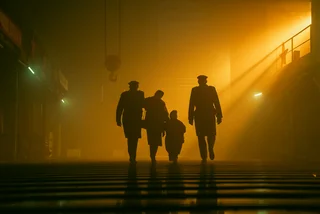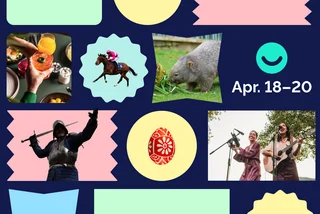The 21st annual Mezipatra Queer Film Festival showcasing LGBTQ+ films will be online this year, since cinemas are currently closed. Films will be available at Aerovod.cz from November 5 to 21. All films will have English and Czech subtitles.
Mezipatra will introduce 11 feature films in the main competition, newly also including documentaries. The traditional festival opening and closing will be available as a live stream at the Moje kino LIVE platform. The complete festival program is available at Mezipatra.cz. The price for watching one film will be 80 CZK, and packages are available.
“To prepare a festival in a pandemic posed an unprecedented challenge for us,” festival director Pavel Bicek said in a press release. “This year has represented an absolute destruction of the film industry status quo. Many festivals didn’t take place at all, others went online, and others still only published the program that would have been offered had it been possible,” he said.
“Simultaneously, films stopped being shot or finished for various periods of time. In such a film vacuum, our programmers were facing an incredibly hard challenge to put the program of this year’s Mezipatra together, but they have succeeded. And I have to note that we have one of the best programs that I remember,” he added.
The festival theme of Recovery draws attention to the mental and physical health of the queer community. The most eagerly awaited films of this year include Dry Wind (Vento Seco), which depicts the limits of monogamy. The Brazilian film had its world premiered at this year’s Berlinale.
South America offers two more films in this year’s program. Young Hunter (El Cazador) focuses on the potential danger of dating apps. One in a Thousand (Las mil y una) examines a relationship between two girls a poor Argentinian suburb.
Identity is a topic of several entries. The German film No Hard Feelings (Futur Drei) has a conflicted young man with Iranian heritage in a sleepy German town. The film won this year’s Teddy Award. The topic of self-acceptance is also faced by the protagonists of Make Up and by David from Minyan.
Freedom and independence are crucial for a teenager in the road movie Lola. Rising trans actress Mya Bollaers won the Magritte Award for the Best Actress.
Documentaries in the main competition are represented by the French film Little Girl (Petite fille). Seven-year-old Sasha has always known she’s a girl. The family accepts that, but she faces obstacles in school and elsewhere. Always Amber shows the life of 17-year-old non-binary Amber and her best friend Sebastian as they face love, inhibitions and misunderstandings.
There is also a section of documentaries outside of the main main competition. Before Stonewall shows fight the gay and lesbian community faced in the last century. How to Survive a Plague look back at the 1980s when the AIDS epidemic erupted. The documentary focused on protest activities that raised awareness of the disease and pointed out the discrimination.

The Invisibles offers a portrait of relationships of the older generation of gays and lesbians. Many are now finally able to experience a peaceful relationship in their old age.
The retrospective section looks back at four iconic films of queer cinema, including the 1931 German film Girls in Uniform (Mädchen in Uniform).
There are also two blocks of short films including a competition, and films from local Queer Kino distribution label under the banner Queer Kino Presents.
For more information and a complete schedule, visit the festival website or Facebook page.












 Reading time: 3 minutes
Reading time: 3 minutes 





























